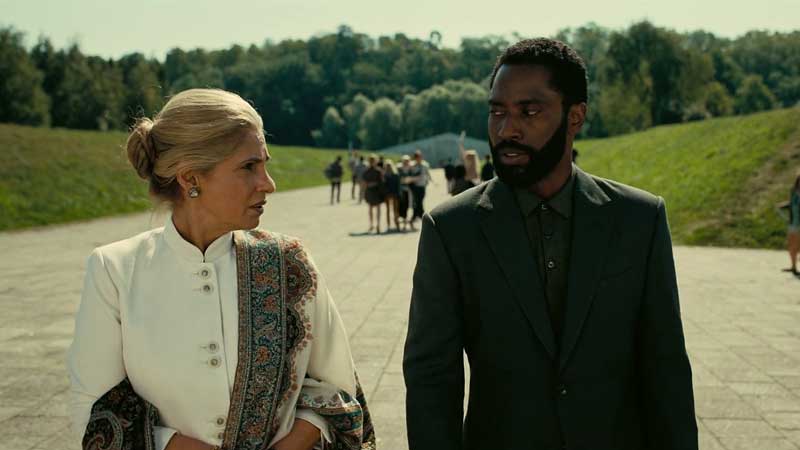An incredible spectacle of all things rich, glamorous, technological and philosophical, that is undermined, unfortunately, by being forced into streaming services that attenuate its natural cinematic language and render the film's complex point even more inscrutable (and inaudible).
xxxxxxxxxxxxxxxxxxxxxxxxxxxxxxxxxxxxxxxxxxxxxxxxxxxxxxxxxxxxxxxxxxxxxxxxxxxxxxxxxxxxxxxxxxxxxxxxxxxxxxxxxxxxxxxxxxxxxxxxxxxxxxxxxxxxxxxxxxxxxxxxxxxxxxxxxxxxxxxxxxxxxxxxxxxxxxxxxxxxxxxxxxxxxxxxxxxxxxxxxxxxxxxxxxxxxxxxxxxxxxxxxxxxxxxxxxxxxxxxxxxxxxxxxxxxxxxxxxxxxxxxxxxxxxxxxxxxxxxxxxxxxxxxxxxxxxxxxxxx
Watching Christopher Nolan's most recent film for a second time streaming on HBO Max did not clarify anything. In fact, it became even more inscrutable. At certain points, the dialogue seemed like it could have been in another language and not have made any difference. It's hard to say what the problem with the film is under these conditions, but one thing seems certain: that it should have been longer. What's there just doesn't give enough context to understand what's going on. And while that may be intentional to some extent, and the natural confusion that even the Protagonist still has at the end of the film, resulting from the fact that the timeline is only just at the beginning of folding-in on itself (even he is still confused about his role, who he met, who did what and why), it seems like the time-constrained editing of the film only ends-up compounding the ambiguity.
We get the idea on how these machines allow time travel: one goes through one door, puts on or takes off their oxygen supply and then they're in the timeline going backwards as it progresses forward. Which is both an interesting idea and also a technical achievement. And while there are some long scenes that follow from the moment of passing through these gates on the way to point they are trying to make in the forward progression timeline, what we don't see though is any actual passage back through the time-portal machine back into the forward progression timeline in one coherent set of scenes (perhaps it needs a third viewing, which it will get, in fairness). Most scenes revolve around chaotic action scenes that make following the complex interweave of the timelines, and the point they try to make nearly impossible. We don't see, for instance, how Protagonist gets back to a point of meeting with the Priya, the Indian woman; we don't see how exactly Kat gets back onto the yacht at the precise time to kill her husband. Why do they go through so much trouble flying a jumbo jet into a building to get access to the time-machine when there are other's of varying sizes seemingly scattered all over the place: the large army-level multi-person transporter seen in the final 'temporal pincer' battle; or the one on the ship. They just pop up everywhere towards the end of movie, with scenes at different points in timelines edited together with no way of knowing what they are apart from logical deduction.
Some impression is conveyed, however, from these reverse timelines: the expectation of what's going to happen at the level of instinctual reaction to a situation one knew was going to occur. Its a similar point that Memento makes. One eventually knows what has happened in the past, and what one needs to do to change the future. And yet, by going back into the past to change it, one enters into a never-ending cycle of temporal circularity whereby one change results in the need for another, and another, to infinity. Which does reflect the situation outside of the logic of linear time to the level of philosophical insight: that the only thing one can do in the unpredictable, non-linear, folded-onto-itself temporality of what is, essentially, the time of life as it is, is to live according to principle. It's the selfless love for another, unconditional opposition of self-destructive hatred, fidelity to a friend, respect for one's self-determination. And while all of this can be extrapolated from the film, it doesn't successfully make these points, not in the way that Interstellar did, anyway.
What the film is good at, however, is cinematic spectacle. The film is amazing in this regard. Nearly every scintillating luxury of the world is reflected on its celluloid. From Mediterranean yachts, jumbo planes, epic conflicts, explosions, gun-fights, expensive car chases, an actually-exploded 747, gold bullion dumped worthlessly onto the runway tarmac, beautiful slender women, psychotic villains—from beginning to end, its all there, all around the world, in every type of environment. It's clear no expense was spared in the making of this film. And so it is triply unfortunate that it fails to make its point clearly, doesn't get the running time it deserves (if this is the case) and also, because of COVID-19, wasn't seen by many in the way that it should be seen: in the theater, on a large screen, with earth-shaking loud sound. Instead, many are forced to now watch it on small screens (perhaps with stereo sound and compressed image), which it doesn't deserve. This may be precisely why the film was, on second viewing on a smaller screen, with a less thunderous sound-system, less comprehensible. Because this is the type of film that it makes sense to search out on it IMAX 50mm film print projections, that requires the cinema itself to make speak its language clearly and comprehensibly.
And so, no matter how flawed it is under the viewing conditions it is now forced into, it is still not flawed enough to undermine the fact that, in its proper context (which this viewer was fortunate enough to see, on IMAX 50mm film), it did fulfill its function as intelligent, thoughtful cinematic spectacle.
It deserves a third viewing and a better discussion than this.
